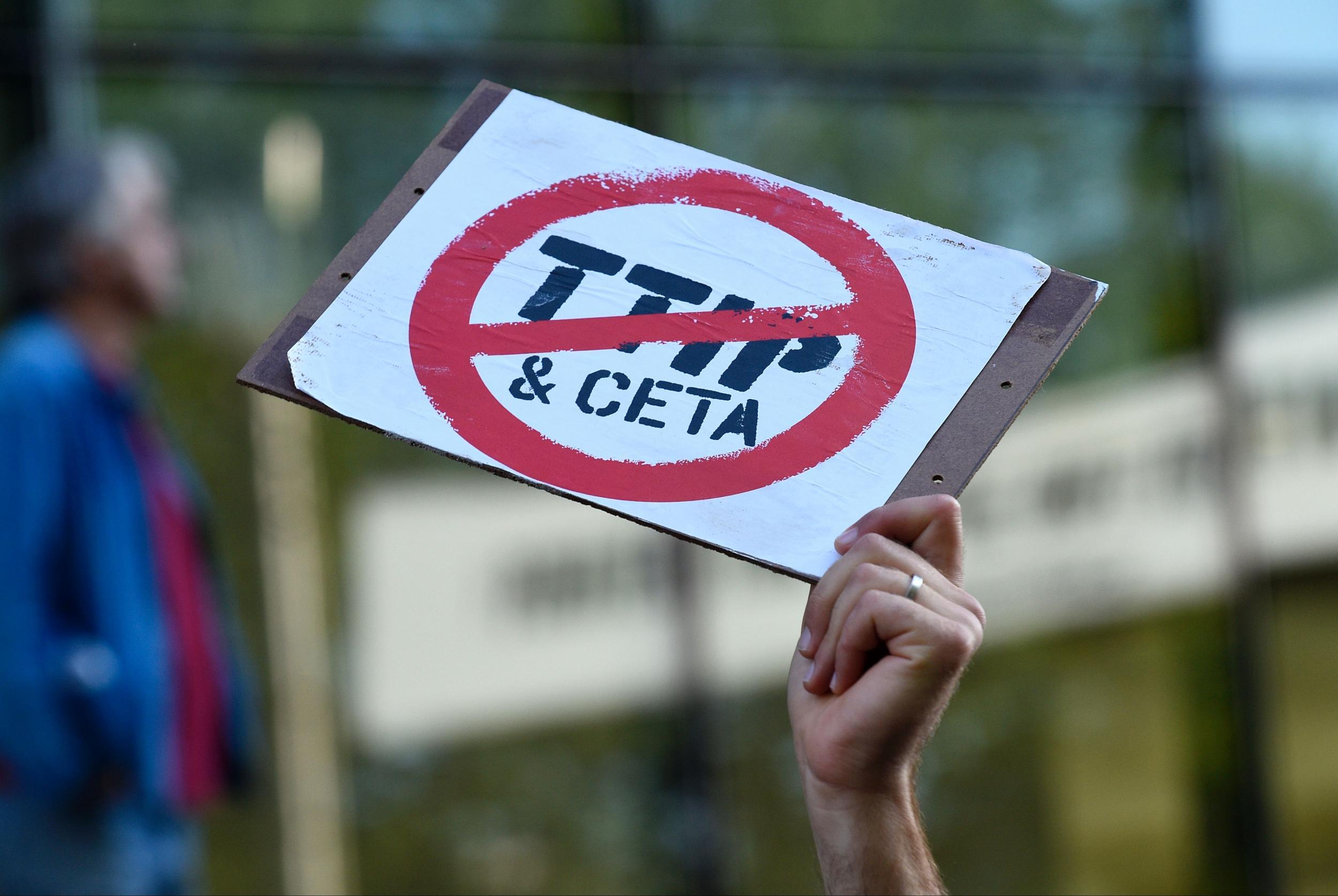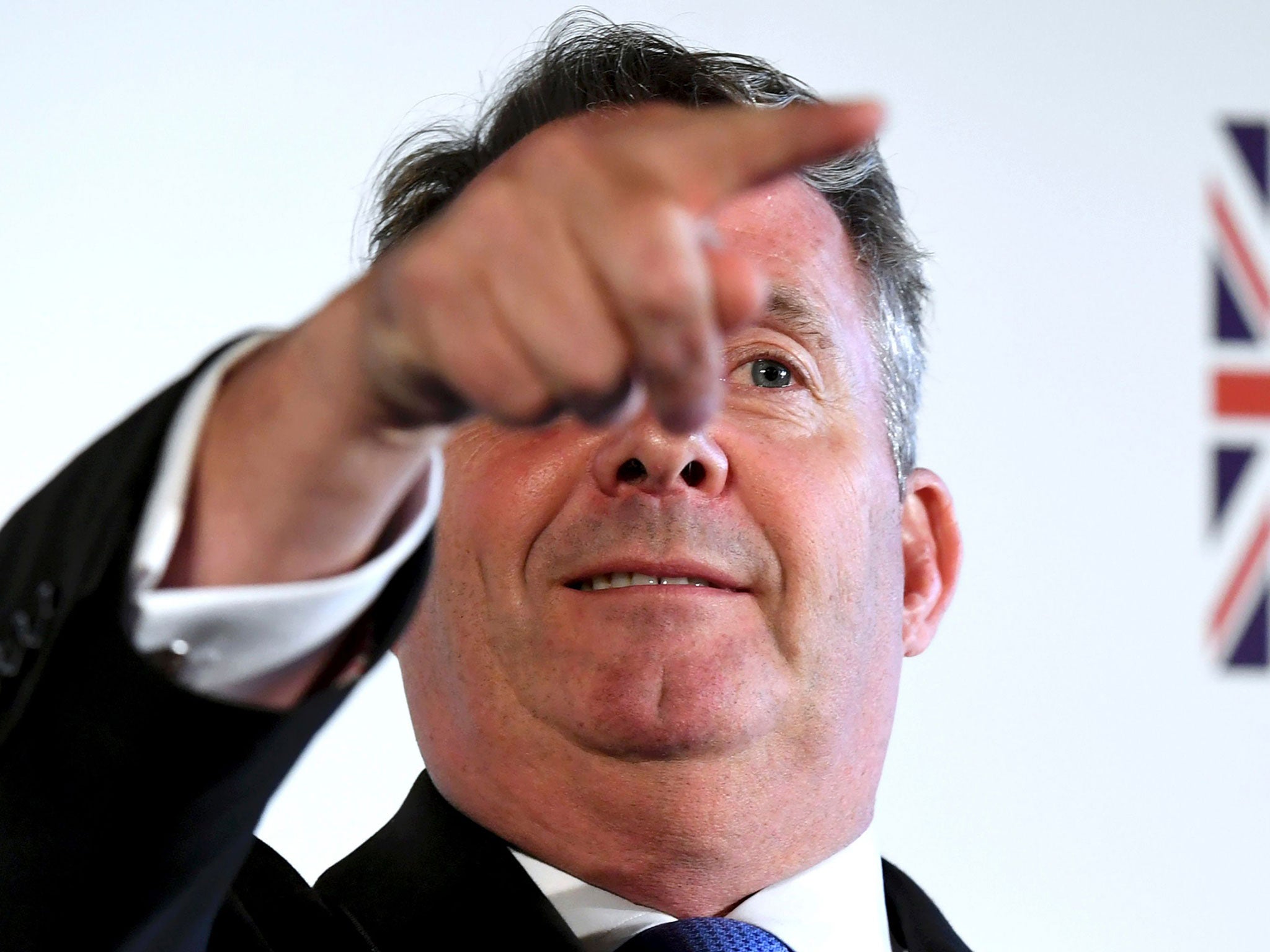MPs will be allowed to debate controversial EU trade deal Ceta only after it has been signed, minister says
Liam Fox said there was no time for a debate in Parliament

Your support helps us to tell the story
From reproductive rights to climate change to Big Tech, The Independent is on the ground when the story is developing. Whether it's investigating the financials of Elon Musk's pro-Trump PAC or producing our latest documentary, 'The A Word', which shines a light on the American women fighting for reproductive rights, we know how important it is to parse out the facts from the messaging.
At such a critical moment in US history, we need reporters on the ground. Your donation allows us to keep sending journalists to speak to both sides of the story.
The Independent is trusted by Americans across the entire political spectrum. And unlike many other quality news outlets, we choose not to lock Americans out of our reporting and analysis with paywalls. We believe quality journalism should be available to everyone, paid for by those who can afford it.
Your support makes all the difference.MPs will only be allowed to debate a controversial free trade deal between the European Union and Canada after it has already been signed, the Government has said.
Liam Fox, the Secretary of State for International Trade, said in a letter to Parliament’s European Scrutiny Committee that the “parliamentary timetable” was such that a debate could not reasonable be scheduled before he signed the agreement.
The denial of parliamentary scrutiny ahead of the signing comes as the Government sidelines parliament in Brexit negotiations. Theresa May has refused to grant MPs a vote on the opening terms of negotiations with the EU.
Last week the regional parliament of the Belgian region Wallonia refused to allow the Belgian premier to sign the Ceta (Comprehensive Economic and Trade Agreement) deal. Britain’s parliament will however have no such veto over the plan – which campaigners say is the “little brother” of the controversial TTIP agreement being negotiated with the US.
They say it will allow corporations to sue governments who impose policies that harm their profits, give corporations a great role in shaping their own regulations and lock in the privatisation of public services.
The Government says the deal will reduce barriers to trade and increase prosperity.
Spain’s foreign minister said earlier this week that Britain’s post-Brexit trade deal with the EU would likely most closely resemble Ceta.
Mr Fox, who resigned in disgrace from the post of Defence Secretary under the 2010 Coalition government but was reappointed as Trade Secretary by Theresa May this year, intends to sign the agreement at an EU-Canada summit on 27 October. He will confirm his intention to sign it at a meeting of European ministers on Tuesday.

Britain’s backing for the plan comes despite it leaving the EU.
“The Government has always been willing to engage with Parliament on trade policy, and I appreciate the need for transparency and scrutiny,” Mr Fox said in a letter to the committee dated earlier this month.
“In this case, the parliamentary timetable is such that it would be difficult to schedule a debate ahead of the 18 October extraordinary Council on Foreign Affairs (Trade) where member states will be required to confirm their agreement to sign Ceta.
“I would, however, certainly welcome the opportunity for a debate ahead of the provisional application of Ceta, which is expected early next year.”
In a report, the European Scrutiny Committee said: “The committee requested an early debate of this legally and politically important trade deal ahead of signature, provisional application and conclusion.
“Nonetheless, we acknowledge the time constraints of scheduling a debate before signature given that there were only just over two sitting weeks between our recommendation and the FAC.
“Under these circumstances, the Committee agrees to a conditional scrutiny waiver for signature only.”
The committee’s members said the minister should report back to the Commons to explain what happened at the foreign affairs meeting, and also schedule a debate “urgently” so that MPs could actually consider the deal before it was implemented next year.
Subscribe to Independent Premium to bookmark this article
Want to bookmark your favourite articles and stories to read or reference later? Start your Independent Premium subscription today.
Join our commenting forum
Join thought-provoking conversations, follow other Independent readers and see their replies
Comments